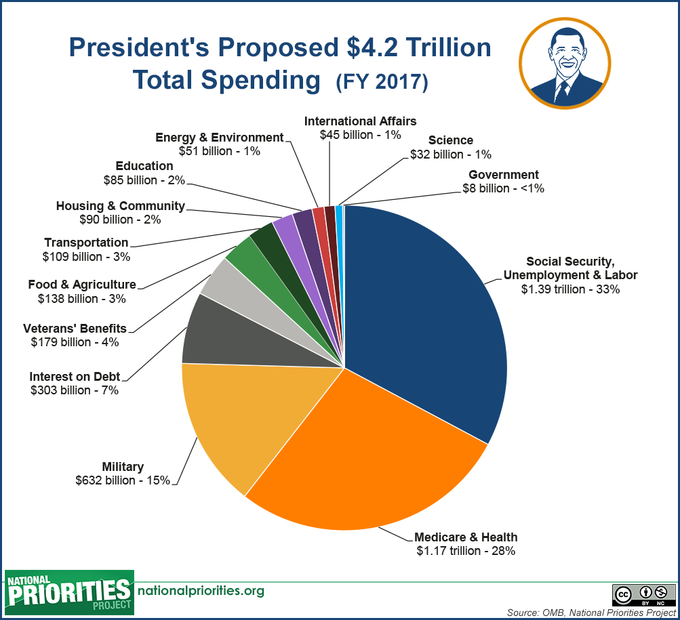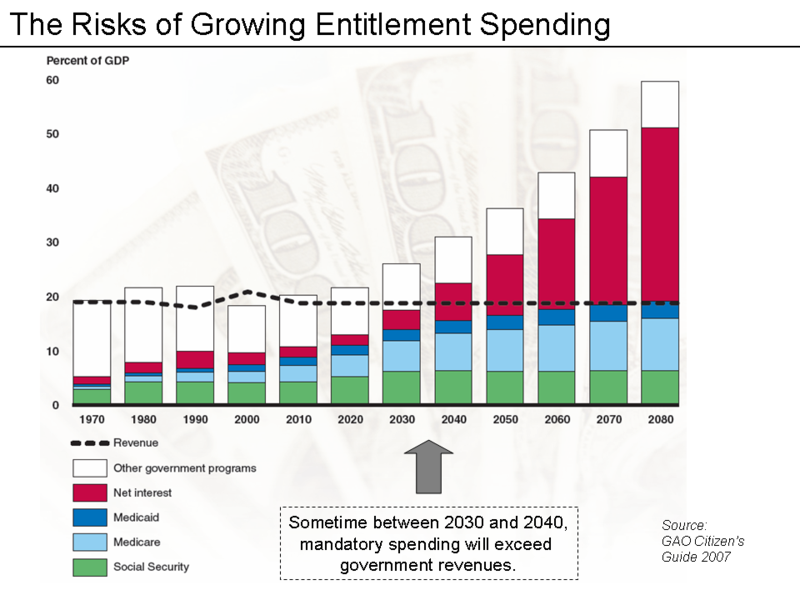You're both correct;
Budget Process
The U.S. Constitution designates the "power of the purse" as a function of Congress.1 That includes the authority to create and collect taxes and to borrow money when needed. The Constitution does not, however, specify how Congress should exercise these powers or how the federal budget process should work. It doesn't specify a role for the president in managing the nation's finances, either.
As a result, the budget process has evolved over time. Over the course of the twentieth century, Congress passed key laws that shaped the budgeting process into what it is today, and formed the federal agencies - including the Office of Management and Budget, the Government Accountability Office, and the Congressional Budget Office - that provide oversight and research crucial to creating the budget.2 The process as it's supposed to work is described here.
Before the Budget
Congress creates a new budget for our country every year. This annual congressional budget process is also called the appropriations process.
Appropriations bills specify how much money will go to different government agencies and programs. In addition to these funding bills, Congress must pass legislation that provides the federal government the legal authority to actually spend the money.3 These laws are called authorization bills, or authorizations. Authorizations often cover multiple years, so authorizing legislation does not need to pass Congress every year the way appropriations bills do. When a multi-year authorization expires, Congress often passes a reauthorization to continue the programs in question.
Authorizations also serve another purpose. There are some types of spending that are not subject to the appropriations process. Such spending is called direct or mandatory spending, and authorizations provide the legal authority for this mandatory spending.4 Federal spending for Social Security and Medicare benefits is part of mandatory spending, because according to the authorization, the government must by law pay out benefits to all eligible recipients.
How Does the Federal Government Create a Budget?
There are five key steps in the federal budget process:
The President submits a budget request to Congress
The House and Senate pass budget resolutions
House and Senate Appropriations subcommittees "markup" appropriations bills
The House and Senate vote on appropriations bills and reconcile differences
The President signs each appropriations bill and the budget becomes law
Step 1: The President Submits a Budget Request
The president sends a budget request to Congress each February for the coming fiscal year, which begins on Oct. 1.5
[+] More
Step 2: The House and Senate Pass Budget Resolutions
After the president submits his or her budget request, the House Committee on the Budget and the Senate Committee on the Budget each write and vote on their own budget resolutions.7
[+] More
Step 3: House and Senate Subcommittees "Markup" Appropriation Bills
The Appropriations Committees in both the House and the Senate are responsible for determining the precise levels of budget authority, or allowed spending, for all discretionary programs.8
[+] More
Step 4: The House and Senate Vote on Appropriations Bills and Reconcile Differences
The full House and Senate then debate and vote on appropriations bills from each of the 12 subcommittees.
[+] More
Step 5: The President Signs Each Appropriations Bill and the Budget Becomes Law
The president must sign each appropriations bill after it has passed Congress for the bill to become law. When the president has signed all 12 appropriations bills, the budget process is complete. Rarely, however, is work finished on all 12 bills by Oct. 1, the start of the new fiscal year.
This chart shows how all of these pieces fit together to make the annual federal budget process.
And we've been running off of continuing resolutions since the last budget passed by....
Harry Reid's Senate. The slight reductions in spending the republicrats got passed were entirely in the military IIRC. None of the democrooks prized pigs missed a meal.
The last budget was written and passed by republicans.
So will the next few budgets.

More never ending spending
True, but less than President Hillary would be proposing.

Yes, both parties are big-budget, big government authoritarians, but the Republicans do push for cutting the deficit. We'll see what happens...with President Pence.
 brummelben
brummelben, what percentages of the budget would you cut, if any, and what do you propose to be the tax rate?




